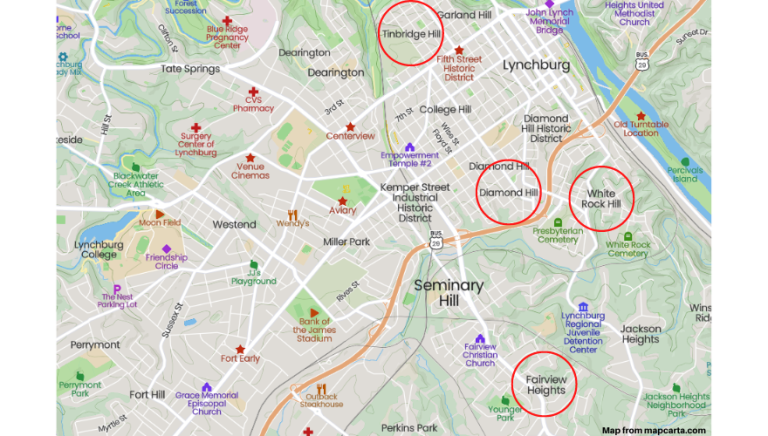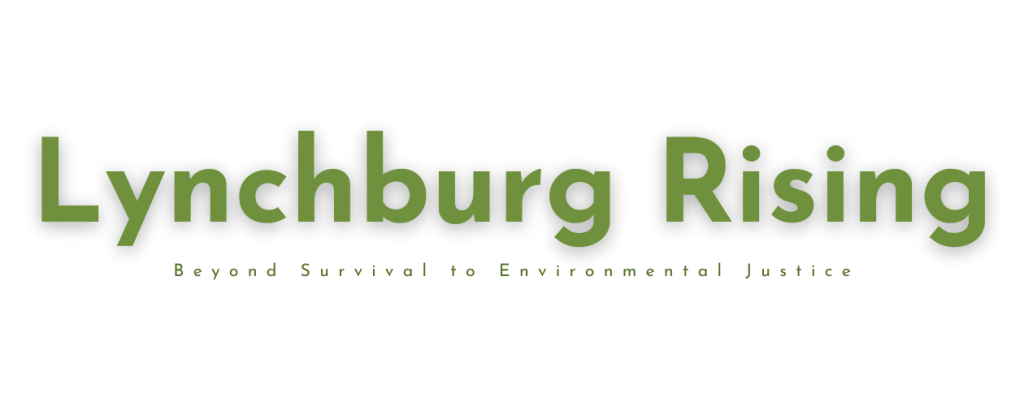Resilient Virginia partnered with Bill Bohn of Sobis, Inc. and Leslie King of Leslie King Consulting to identify the 4 neighborhoods in Lynchburg that will be the initial focus of Lynchburg Rising: Beyond Survival to Environmental Justice. Diamond Hill, Fairview Heights, Tinbridge Hill, and White Rock Hill are among the top historically underserved neighborhoods in the city that are expected to experience greater impacts due to the changing climate, especially in regards to flooding.
We are excited to partner with community members in these neighborhoods to raise awareness of their inland flooding risk – what increases their risk of flooding and what can decrease their risk of flooding. At the moment, we are looking for community ambassadors in each neighborhood and will start to reach out to community members in October.
If you reside in Lynchburg, especially if you are in Diamond Hill, Fairview Heights, Tinbridge Hill, or White Rock Hill, please visit our Events page to find a time to come meet us. We want to hear about all of the amazing things your neighborhood has to offer and how flooding or other climate issues have impacted you.






